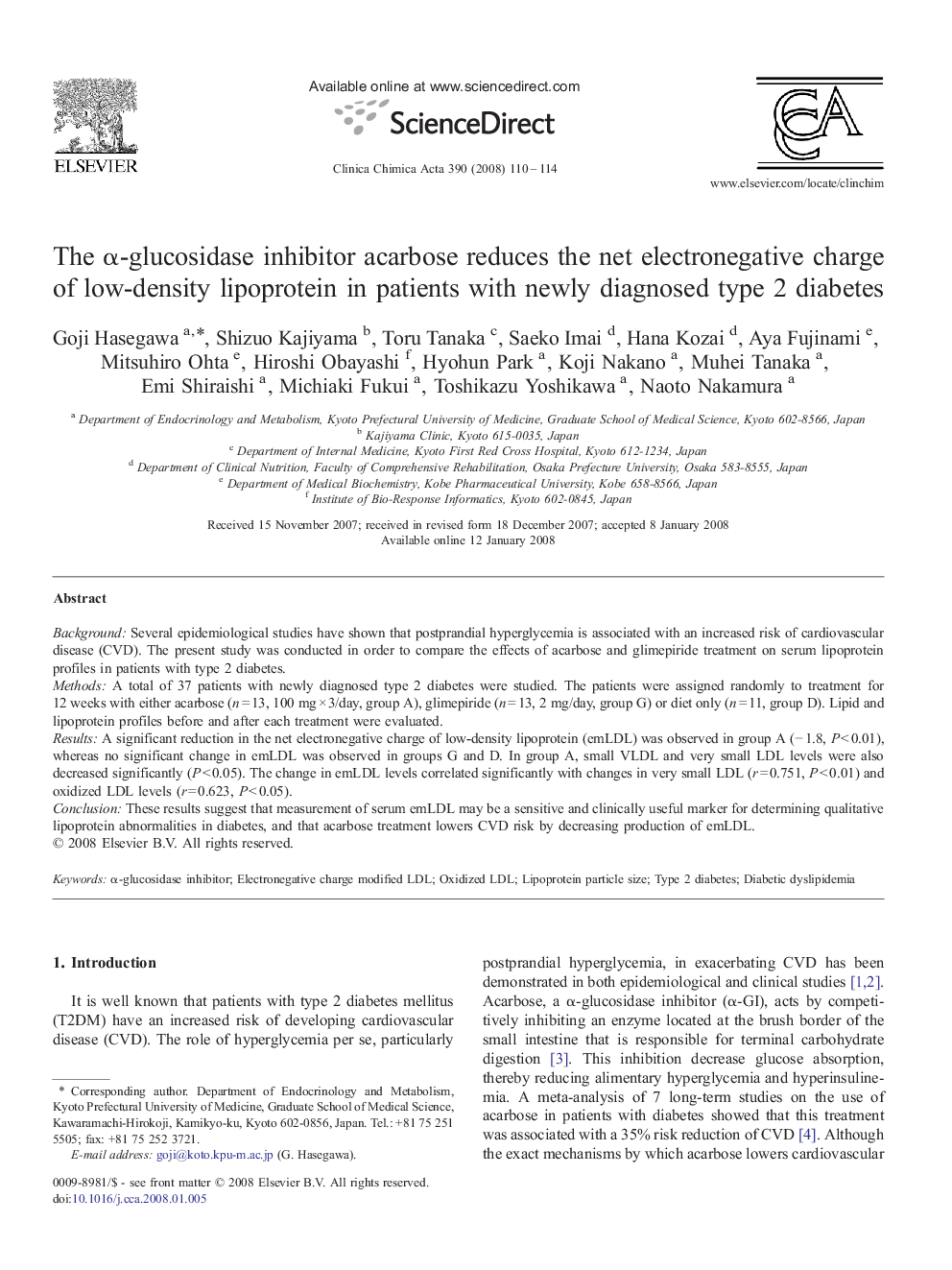| Article ID | Journal | Published Year | Pages | File Type |
|---|---|---|---|---|
| 1967095 | Clinica Chimica Acta | 2008 | 5 Pages |
BackgroundSeveral epidemiological studies have shown that postprandial hyperglycemia is associated with an increased risk of cardiovascular disease (CVD). The present study was conducted in order to compare the effects of acarbose and glimepiride treatment on serum lipoprotein profiles in patients with type 2 diabetes.MethodsA total of 37 patients with newly diagnosed type 2 diabetes were studied. The patients were assigned randomly to treatment for 12 weeks with either acarbose (n = 13, 100 mg × 3/day, group A), glimepiride (n = 13, 2 mg/day, group G) or diet only (n = 11, group D). Lipid and lipoprotein profiles before and after each treatment were evaluated.ResultsA significant reduction in the net electronegative charge of low-density lipoprotein (emLDL) was observed in group A (− 1.8, P < 0.01), whereas no significant change in emLDL was observed in groups G and D. In group A, small VLDL and very small LDL levels were also decreased significantly (P < 0.05). The change in emLDL levels correlated significantly with changes in very small LDL (r = 0.751, P < 0.01) and oxidized LDL levels (r = 0.623, P < 0.05).ConclusionThese results suggest that measurement of serum emLDL may be a sensitive and clinically useful marker for determining qualitative lipoprotein abnormalities in diabetes, and that acarbose treatment lowers CVD risk by decreasing production of emLDL.
